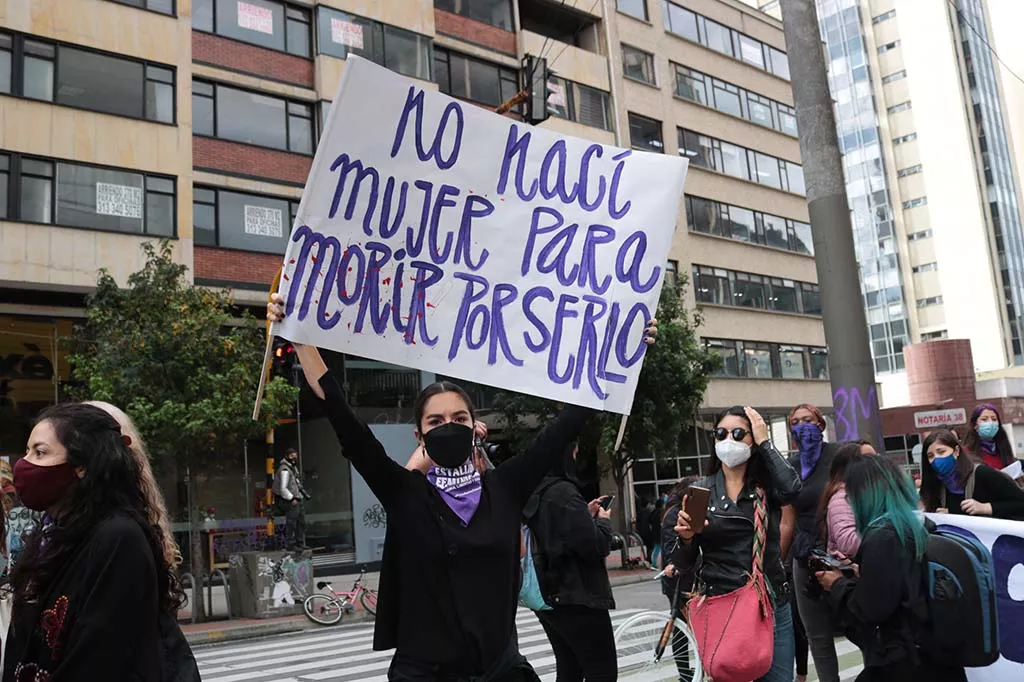Gender-based violence: A matter of democracy and human rights

Long before Covid-19 arrived, gender-based violence (GBV) was recognised as a global pandemic and one of the most systematic human rights violations. Women and girls are the most affected by GBV, as much as 1 in 3 women will experience some form of GBV in their lifetime. Also, boys, men and people with non-hegemonic gender identities and sexual orientations experience GBV in their daily life. That is why GBV is considered a matter of human rights and democracy, and it is everyone's business.
To address this global problem, global measures are needed. In 1979 the Convention on the Elimination of All Forms of Discrimination Against Women (CEDAW) was adopted by the United Nations General Assembly. This treaty is considered the most comprehensive international agreement on the fundamental human rights of women. Until this day, 189 countries have ratified the CEDAW. Nevertheless, more than 40 years after the Convention was adopted, GBV is still one of the biggest obstacles to achieving gender equality globally.
In 1979, women were still not considered entitled human beings. In 1993, at the United Nations World Conference on Human Rights, women were recognised as rights-holders in international law. Consequently, in 1999 the international day against GBV became official as a global call to action to prevent and end this form of violence. But why do we commemorate this date specifically? Back in the 1950s in the Dominican Republic, the sisters Patria, Minerva and Maria Teresa Mirabal were three well-known activists against the dictatorial regime of Rafael Trujillo. The Mirabal Sisters actively opposed Trujillo's cruel and systematic violent rule and led a movement to challenge his power. On the 25th of November of 1960, the three sisters were murdered.
Gender-based violence affects everyone's rights. It violates human rights, as it is a flagrant transgression of the principles enshrined in the Universal Declaration of Human Rights. In particular the right to life, liberty and personal safety (article 3); the right not to be subjected to torture or cruel, inhuman or degrading treatment or punishment (article 5); the right to equality facing the law and to equal protection under the law (article 7); the right to a fair trial (articles 8 and 10); the right to freedom of movement (article 13), and the freedom of assembly and association (article 20). In fact, gender-based violence is one of the most evident mechanisms through which women, girls and people with non-hegemonic gender identities and sexual orientations are subordinated and controlled, exacerbating the justice and inequality gaps for them.
The above is connected with issues of democracy. The case of the Mirabal sisters illustrates why GBV is a matter of democracy. In these types of contexts, the violence used over women, girls and people with non-hegemonic gender identities and sexual orientations are not unintended. It has the primary goal of continuing exercising power and restricting the participation of these people in public spaces. In war and conflict contexts, women´s and girls´ bodies are used as spoils of war, as territories that can be invaded. These are not the types of violence that affect only the victim individually, but it sends a strong symbolic message to a whole group of people, organisations and communities. It silences their voice as a disciplinary measure that intends to maintain a patriarchal system and the power rule based on gender.
As a result, both governments and everyone should take actions against GVB to prevent and respond to it. Given that gender-based violence severely restricts victims' ability to participate in society and influences decisions that affect their lives. In this regard, it is necessary to take a series of actions that contribute to protecting women, girls and people with non-hegemonic gender identities and sexual orientations from all types of violence, as well as to implement effective measures to address cultural and symbolic patterns that confer legitimacy on gender-based violence.
Here are some suggestions:
- Recognise international commitments regarding GBV (CEDAW, CDN, X Regional Conference of Women in Latin America. and the Caribbean, SDG 5 of the 2030 Agenda, etc.) to incorporate standards and principles within the actions of the States.
- Run national campaigns and adopt policies to transform the social representations that allow gender-based discrimination. and violence against women, girls and people with non-hegemonic gender identities and sexual orientations.
- Scale-up comprehensive, accessible and quality services for survivors of gender-based violence.
- Provide free and quality legal support to victims.
- Guarantee due diligence in cases of gender-based violence that enable access to justice and guarantees of non-repetition.
Gender-based violence against women, girls and people with non-hegemonic gender identities and sexual orientations is everyone business. To transform our societies, achieving gender equality and fostering respect for the dignity and human rights of all will require all of us to take action against all forms of GBV. We are all agents of this much-needed change.
Andra nyheter

The power of people powered Public-Private Partnerships
Public–Private Partnerships (PPPs) are often discussed in terms of roads, power plants, housing, and other large infrastructure projects. But as discussed on the People’s Partnership Podcast, PPPs are...

ForumCiv’s social media accounts labelled as “extremist materials” in Belarus
Important message to our Belarusian followers. Any interaction with our content can now lead to legal consequences in Belarus. Please read the information below and take the necessary precautions for...

ForumCiv enters new strategic partnership
ForumCiv is proud to announce a new three-year strategic partnership with Sida, totalling SEK 137 million.